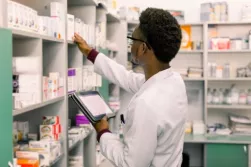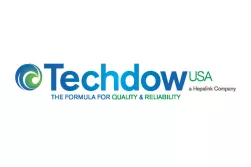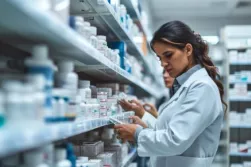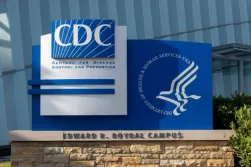In-Depth
View all In-depth content

Pharmacy design is evolving, driven by advancements in technology, a deeper understanding of workflow optimization, and an increased focus on medication safety and staff well-being. The future of pharmacy design depends on a comprehensive approach that integrates state-of-the-art technology, ergonomic principles, and a patient-centered mindset. This article explores the trends and key considerations shaping the pharmacy of tomorrow, highlighting how strategic design improvements can enhance efficiency, ensure safety, and improve patient outcomes.
Embracing Technological Advancements
Integration of cutting-edge technology is paramount in modern pharmacy design. As pharmacy operations expand and grow in complexity, leveraging technology is critical to function. Automated dispensing systems, robotic medication management, and advanced inventory tracking should not be futuristic concepts, but indispensable components of an efficient pharmacy. These technologies streamline operations, reduce errors, and allow staff to focus on patient care.
Impact of Technology on Pharmacy Operations
- Reduced Medication Errors: One study reported a 63% decrease in potential adverse drug events and a 96% relative reduction in dispensing errors after implementation of barcode technology in a hospital pharmacy.1
- Increased Efficiency: One hospital pharmacy achieved a 7-minute turnaround time and an average accuracy of 99.48% after implementation of an automated dispensing system.2
- Inventory Optimization: Upgrading dispensing technology and properly managing automated dispensing cabinets can decrease inventory stockouts and generate significant cost savings through enhanced inventory management.3
Prioritizing Ergonomics and Staff Well-Being
The physical design of a pharmacy must prioritize staff well-being, as studies show that employee satisfaction is linked to higher customer satisfaction.4 Ergonomically designed workstations analogous to airplane cockpits reduce physical strain and increase productivity. Poor working conditions have been shown to contribute to medication errors.5 Survey data found that pharmacy personnel who are at risk of experiencing high distress have a twofold risk of making a medication error.6 Intentional staff-centered design can mitigate these risks.
Designing for Medication Safety and Regulatory Compliance
Good workflows significantly impact medication and patient safety, so it should come as no surprise that safe medication practices should be at the forefront of pharmacy design. In a global systematic review, the World Health Organization reported a 5% prevalence of preventable medication-related harm.7 One study at an academic hospital observed that 21% of medication errors went undetected by pharmacists during verification.8 Designing workflows that emphasize safety, combined with a commitment to regulatory compliance, ensures patient protection.
Enhancing Collaboration and Communication
Effective communication and collaboration among pharmacy staff and other healthcare professionals are essential for delivering high-quality care. Convenient access to patient data improves medication management and reduces errors stemming from miscommunication. Pharmacy design should incorporate spaces and workstation lines of sight that facilitate teamwork and information sharing. Quiet workspaces that promote concentration and minimal interruptions are crucial for tasks that require high levels of focus. Distractions are linked to 45% of medication errors.9
Conclusion
Thoughtful pharmacy design has immense potential to transform healthcare and pharmacy operations. By embracing technology, prioritizing ergonomics, ensuring medication safety, and fostering collaboration, we can create efficient pharmacy environments that deliver high-quality patient care, ultimately improving patient outcomes.
References:
- Poon EG, Cina JL, Churchill W, et al. Medication Dispensing Errors and Potential Adverse Drug Events before and after Implementing Bar Code Technology in the Pharmacy. Annals of Internal Medicine. 2006;145(6):426. doi:https://doi.org/10.7326/0003-4819-145-6-200609190-00006
- Temple J, Ludwig B. Implementation and evaluation of carousel dispensing technology in a university medical center pharmacy. American Journal of Health-System Pharmacy. 2010;67(10):821-829. doi:https://doi.org/10.2146/ajhp090307
- Labuhn J, Almeter P, McLaughlin C, Fields P, Turner B. Supply chain optimization at an academic medical center. American Journal of Health-System Pharmacy. 2017;74(15):1184-1190. doi:https://doi.org/10.2146/ajhp160774
- Chamberlain A, Zhao D. The Key to Happy Customers? Happy Employees. Harvard Business Review. Published August 19, 2019. https://hbr.org/2019/08/the-key-to-happy-customers-happy-employees
- Pharmacy Workplace and Well-Being Reporting (PWWR) PWWR Report X Second Quarter 2024. American Pharmacists Association; 2024:1-11. Accessed September 24, 2024. https://www.pharmacist.com/Advocacy/Well-Being-and-Resiliency/pwwr
- Pharmacy Staff | Mental Health Resources | Rising Stress Levels. National Association of Boards of Pharmacy. https://nabp.pharmacy/initiatives/pharmacy-practice-safety/mental-healt…
- World Health Organization. Global Burden of Preventable Medication-Related Harm in Health Care. World Health Organization; 2024.
- Cina JL, Gandhi TK, Churchill W, et al. How Many Hospital Pharmacy Medication Dispensing Errors Go Undetected? The Joint Commission Journal on Quality and Patient Safety. 2006;32(2):73-80. doi:https://doi.org/10.1016/s1553-7250(06)32010-7
- Cohen MR, Smetzer JL. Safe Practice Environment Chapter Proposed by United States Pharmacopeia; Sulfamethoxazole/Trimethoprim and Lisinopril Hyperkalemia. Hospital Pharmacy. 2009;44(3):210-213. doi:https://doi.org/10.1310/hpj4403-210

In hospital settings, medication reconciliation stands as a cornerstone in patient safety efforts, ensuring accurate medication histories and preventing adverse drug events. Pharmacy technicians play a pivotal role in this process, offering indispensable support to pharmacists and healthcare teams. As hospital pharmacy leaders and executives navigate the complexities of healthcare delivery, harnessing the full potential of pharmacy technicians in medication reconciliation becomes paramount for optimizing patient outcomes and operational efficiency.

In June of 2023, Techdow USA Inc., a division of the Hepalink Group, successfully launched Enoxaparin Sodium (Enoxaparin) in multiple strengths of pre-filled syringes. Techdow USA’s Enoxaparin is critically needed and will be used primarily in the outpatient setting to treat and prevent harmful deep vein thrombosis and pulmonary embolisms. Techdow USA’s parent company, the Hepalink Group, is a global leader in naturally extracted active pharmaceutical ingredients (API) and finished drugs that sources from an extremely diverse and robust supply chain network.

Pharmacy technicians are the backbone of successful pharmacy operations. In health system inpatient pharmacies, they handle complex tasks such as sterile compounding, inventory management, controlled substance security, automation oversight, and handling of hazardous medications. They work tirelessly behind the scenes to ensure patients receive safe and quality pharmaceutical care. The ongoing shortage of qualified pharmacy technicians is a significant barrier to progress in an evolving healthcare landscape in the era of technological revolution.
VIDEOS
VIEW ALL VIDEOS
In this insightful interview, Alex Kardos, Corporate Director of Pharmacy Services at RX Holding Hospital, discusses his role overseeing pharmaceutical operations across 126 sites. He highlights the challenges of navigating regulatory pressures, drug shortages, and staffing issues while emphasizing the growing importance of driving revenue in outpatient settings. Kardos shares how his team balances these demands by leveraging peer insights and vendor partnerships to improve efficiency and compliance. His leadership approach, focused on delegation and innovation, offers valuable lessons for pharmacy professionals looking to optimize operations and revenue.
Dr. Rabiah Dys, Senior Vice President of Clinical Services and Program Development at CPS, shared insights at ASHP on her role and passion for advancing health equity. She emphasized the importance of improving health literacy by helping patients understand their diagnoses and care plans, starting at hospital admission. Dr. Dys also highlighted the need for better continuity of care between hospital discharge and community pharmacy settings to ensure patients can manage their health effectively.
Last fall, Jennifer Biar, Chief Pharmacy Officer at Prisma Health, sat down with Pharmacy Angle, sharing her journey in pharmacy leadership, which began unexpectedly during her 27-year tenure at the organization. She highlighted the evolution of healthcare, from single hospitals to large systems, and discussed how pharmacies are now focusing not only on reducing costs but also on generating revenue. Jennifer also emphasized the importance of advocacy for the pharmacy profession, especially for pharmacists to be recognized as providers.
Last Fall, Lisa Dyer, director of ambulatory services at UW Northern Illinois, shared with Pharmacy Angle her journey, from managing the outpatient pharmacy to overseeing a wide range of services, including ambulatory care and home infusion pharmacies. She shares her early inspiration from a local pharmacy director, her experience transitioning from retail to hospital pharmacy, and her passion for creating career opportunities through initiatives like the pharmacy apprenticeship program.
Industry News
View all Industry News

SAVANNAH, GA - Johnson & Johnson recently announced positive results from the Phase 2/3 Vibrance-MG study of nipocalimab in anti-AChR positive adolescents (aged 12 – 17 years) living with generalized myasthenia gravis (gMG). Study participants who were treated with nipocalimab plus standard of care (SOC) achieved sustained disease control as measured by the primary endpoint of immunoglobulin G (IgG) reduction from baseline over 24 weeks, and secondary endpoints of improvement in MG-ADLand QMG scores. These Phase 2/3 data will be featured in an oral presentation (Abstract #MG100) at the Myasthenia Gravis Foundation of America (MGFA) Scientific Session during the American Association of Neuromuscular & Electrodiagnostic Medicine (AANEM) Annual Meeting, where Johnson & Johnson will present 25 abstracts.
"Findings from the Vibrance-MG study underscore the potential of this investigational therapy for young individuals aged 12 – 17 living with gMG. Results show a significant reduction in IgG of approximately 70% in adolescents and a clinical benefit that is consistent with the Vivacity-MG3 study in adults," said Jonathan Strober, M.D., Director of Clinical Services for Child Neurology and Director of the Muscular Dystrophy Clinic at UCSF Benioff Children's Hospital.d "It is encouraging to see these positive results as there are currently no approved advanced treatment options for this adolescent population in the United States."
About 10% of new cases of myasthenia gravis are diagnosed in adolescents (12 – 17 years of age) and the severity of gMG in pediatric patients is heightened with 43% having experienced over five hospitalizations in their lifetime, 46% having at least one intensive care unit stay and 68% having periods of exacerbated disease.
Treatment with nipocalimab plus SOC met the study's primary endpoint of reduction in total serum IgG (-69%), and the two secondary endpoints of MG-ADL and QMG, which are measures of disease activity. Four of five patients achieved minimum symptom expression (MG-ADL score 0-1) by the end of their treatment phase. Nipocalimab was well-tolerated over the six-month period, similar to tolerability seen in adult participants in the Vivacity-MG3 study. There were no serious adverse events and no discontinuations due to an adverse event.
Presented for the first time, these open-label Phase 2/3 results in adolescents are consistent with findings from the pivotal study of nipocalimab in adult patients with gMG. Nipocalimab when added to SOC is the first FcRn blocker to demonstrate sustained disease control in a registrational trial as measured by improvement in MG-ADL over placebo plus SOC over a period of six months of consistent dosing (Q2 week) among adults living with gMG.
"The Vibrance-MG data add to the expanding clinical profile of nipocalimab and highlight its potential for adolescents living with gMG who are in need of new treatments," said Sindhu Ramchandren, M.D., Executive Medical Director, Neuroscience, Johnson & Johnson Innovative Medicine. "We are committed to developing innovations for autoantibody-driven neurological diseases, like gMG, with the aim of transforming the lives of people living with these conditions."
Earlier this year, Johnson & Johnson announced the submission of applications to the U.S. Food and Drug Administration (FDA) and the European Medicines Agency (EMA) seeking approval for nipocalimab for the treatment of gMG.

A recent study suggests that Medicare could significantly reduce waste from the Alzheimer’s drug lecanemab by introducing a new vial size, potentially saving up to 74% of the $336 million lost annually due to discarded medication. The research, published on October 14 in JAMA Internal Medicine, highlights the issue of drug wastage caused by dosage discrepancies and offers a straightforward solution: adding a 75 mg vial to complement the existing 500 mg and 200 mg vials.

Philadelphia, PA – GSK has released promising new data from the AReSVi-006 Phase III trial, which evaluated the efficacy and safety of a single dose of AREXVY, the world’s first Respiratory Syncytial Virus (RSV) vaccine, in preventing lower respiratory tract disease (LRTD) caused by RSV in adults aged 60 and older. The data, spanning three full RSV seasons, includes results for adults at increased risk due to underlying health conditions.

The Centers for Disease Control and Prevention (CDC) is informing public health officials, clinicians, and affected patients, their families, and caregivers about a potential public health risk among individuals ordering what they believe to be prescription medications from online pharmacies. On September 30, 2024, the U.S. Department of Justice (DOJ) announced an indictment against individuals running illegal online pharmacies.